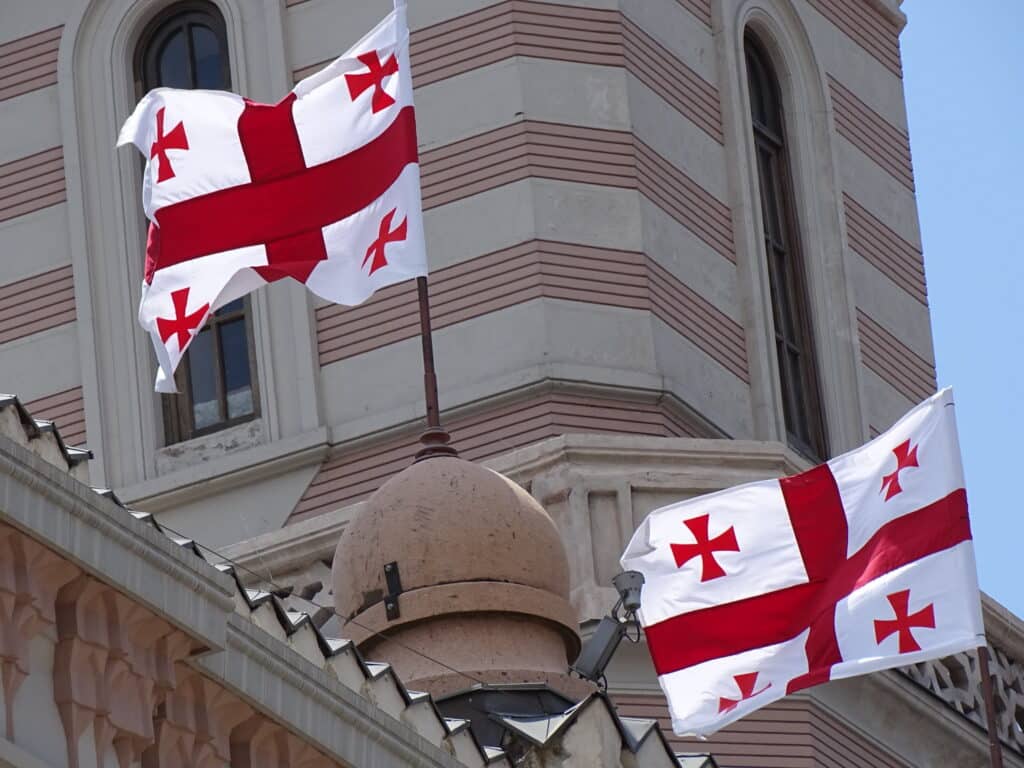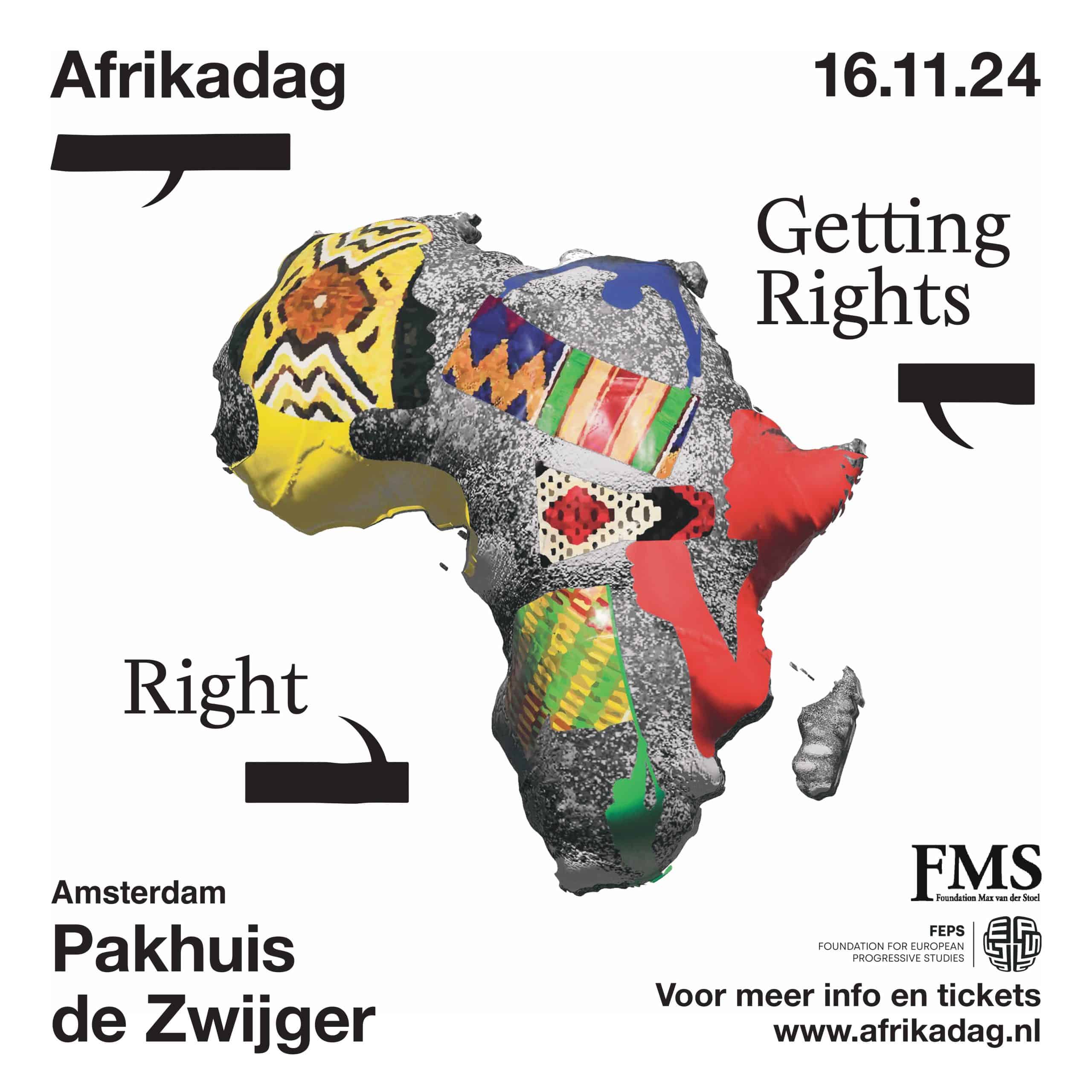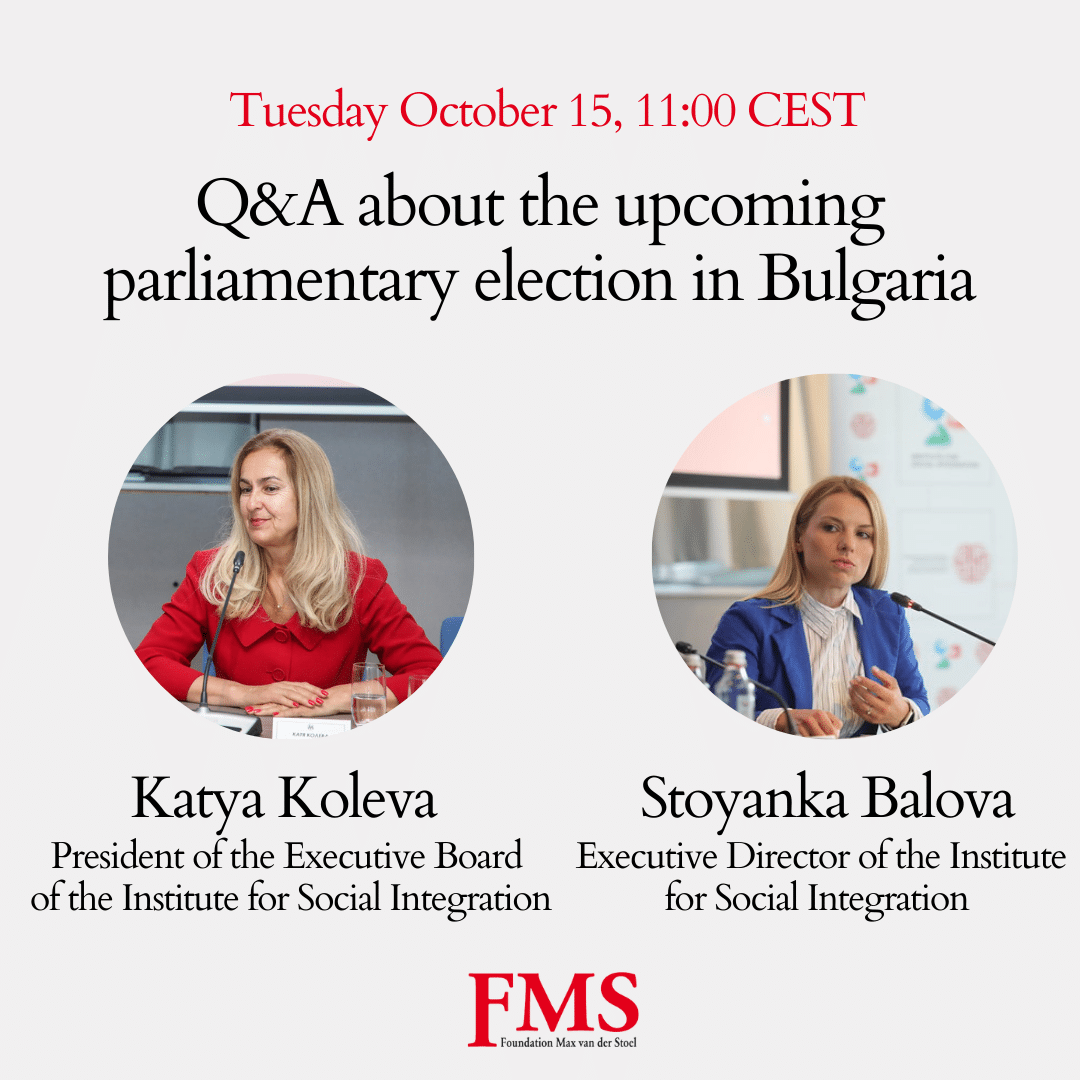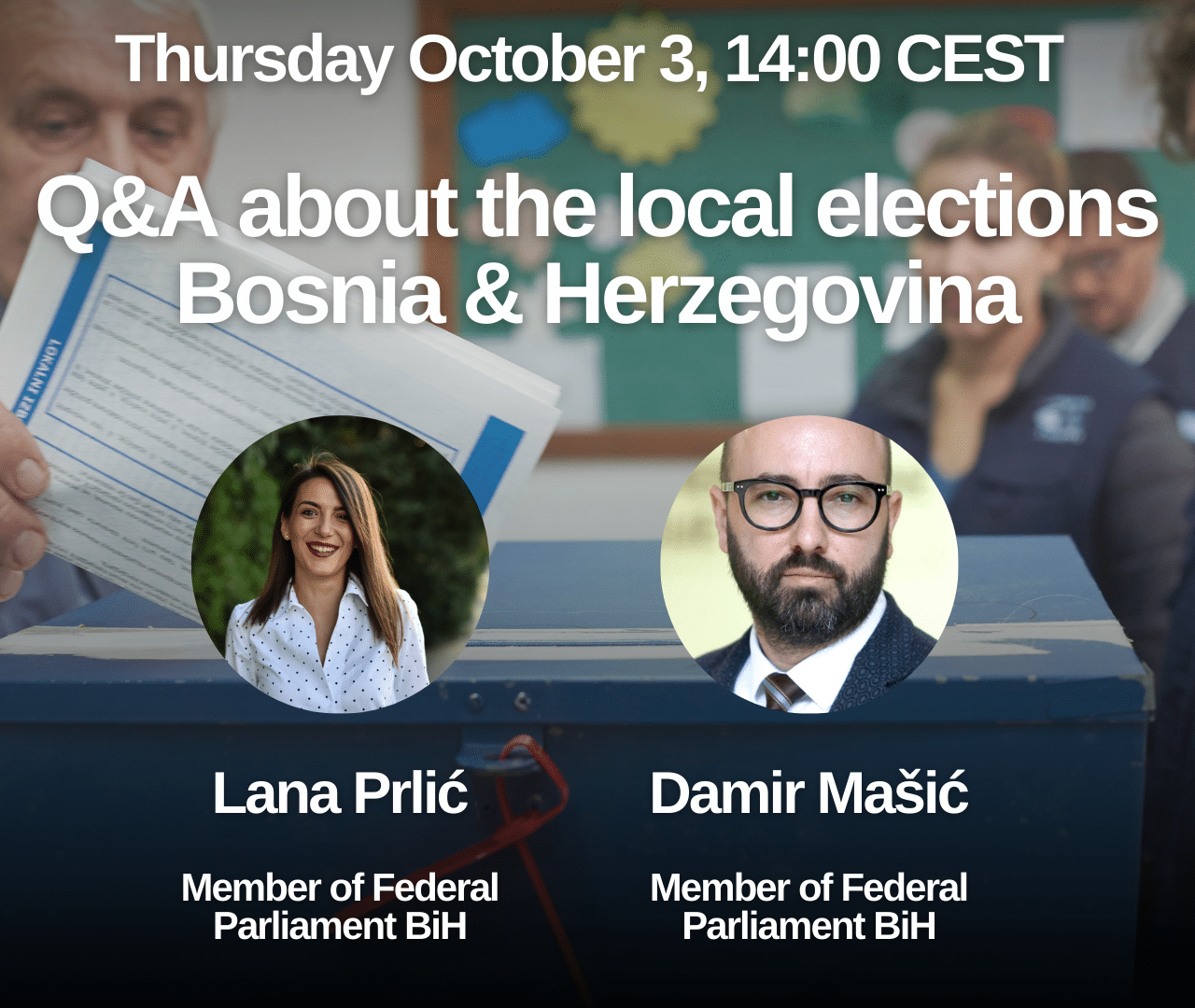Photo: Georgian flags in the old town of the capital Tbilisi -. Flickr
In late October, a seven-member delegation from the European Forum for Democracy and Solidarity (EFDS) visited Georgia. The group included MPs from several European countries and representatives of political foundations. The focus was mainly on Georgia's foreign policy, following up on the EU Commission's recommendations, discussions with and assessment of relations between civil society actors and political parties. Moreover, our delegation assessed the main challenges related to the parliamentary elections taking place in October this year.
The importance of our visit
It is important for the EFDS to build knowledge about Georgia's challenges in democratic development. Although the country initially took important steps towards becoming a full democracy, progress in some areas has stagnated or is in decline. Over the past decade, the country's opposition, activists and NGOs have found it increasingly difficult to operate. State interference in state institutions and the media, as well as electoral fraud, have led to distrust in the government and large-scale protests, especially in March 2023. The normalisation of relations with Russia has raised further concerns about its commitment to both democratic values and transatlantic loyalties. At the time of the EFDS visit, Georgia was still in the process of gaining EU candidate status, in December it officially became a candidate country. If Georgia meets the strict conditions to become an EU member, it can move towards democracy and away from Russia.
Another important part of the mission was establishing contacts with organisations in Georgia. There are several social democratic and progressive foundations in the country that could benefit from networking. The EFDS visited several such organisations to assess the possibility of future cooperation. The main goal is to promote cooperation among EFDS organisations and establish projects in Georgia that help progressive actors address domestic socio-political challenges.
Russia's invasion of Ukraine has reinforced the belief among some Georgians that reconciliation is the best strategy to avoid war with Russia. Within Georgian political discourse, which was already heavily focused on the relationship with and potential threat from Russia, the conflict has put even more emphasis on how to deal with Russia. Differences of opinion on security issues are a major source of disagreement between GD and UNM. They have led to further polarisation and had a negative impact on Georgia's democratisation path.
Findings and recommendations
The political strategy of the ruling Georgian Dream (GD) party is important to understand the current political situation in Georgia. In recent years, the party has swapped its socially-oriented policies for a more repressive, power-hungry strategy. The 'foreign agents' law is a notorious example of this, but there are many more examples of political institutions being eroded by the ruling party. The legitimacy of Georgian politics is quite low due to the role of opaque funding streams, vested business interests and personal feuds. The entry threshold for new parties seeking to break the bipolar political 'status quo' - with GD and UNM as the main parties - is quite high. However, if a third force emerged in politics, it could lead to more political pluralism and less partisan legislation. In addition, there is currently a lack of effective communication between civil society organisations and political parties. If this improves, it could help new political parties gain institutional knowledge, mobilise people and increase their support.
Under GD's rule, civil society in Georgia has also come under increasing pressure. Ongoing attacks by GD have been particularly damaging to vulnerable groups such as the LGBTQI+ community. It is important that the EU monitors and follows up on violations of minority rights as part of Georgia's EU accession process. The media landscape in Georgia is largely dominated by the ruling GD party that uses it to spread their political message. There are worrying signs that the media is not functioning as it should in a fully-fledged democracy. A pluralistic and impartial media landscape and independent journalism would help combat political polarisation and lay democratic foundations.
This October's elections will be an important moment for the country in several ways. It will become clear which direction the Georgian government will take with regard to joining the European Union. GD will be up against its main rival, the United National Movement (UNM). The two parties are bitter rivals and base their identities on opposition to the other. Thus, the elections will also be an important measuring point for the political polarisation arising from the struggle between the two parties.





